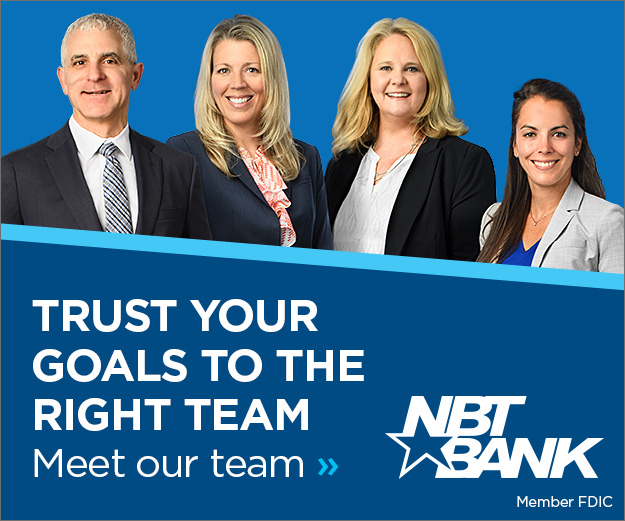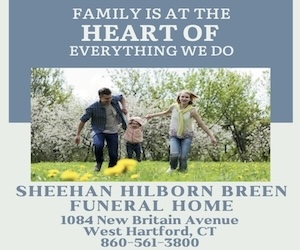By Cindy Mindell
WEST HARTFORD – Alan Solinsky takes the Fourth Commandment very seriously. When he teaches teens at the Teen Leadership & Philanthropy Institute, part of the Jewish Teen Learning Connection in West Hartford, he starts with the directive from the Torah: “Remember the Sabbath day, to keep it is holy. Six days shall you labor and do your work.”
But to Solinsky, “work” doesn’t just mean something one does for personal gain. Rather, he tells his students, “Work on yourself to become successful so that you can become philanthropic and help others.”
This is how the established Hartford-area ophthalmologist has lived his own life and taught his children, employees, and Jewish teens to do the same.
Solinsky was 12 when he organized his first fundraiser. A Bronx native, he moved to West Hartford at age 10 with his parents and two younger sisters. When his grandmother suffered a heart attack two years later, he organized a children’s summer fun fair to raise money for the American Heart Association. His philanthropic spirit grew from there, as a hospital volunteer and committee chair in high school, when he began to volunteer in hospitals and take an interest in medicine.
That involvement continued at Brandeis University, where Solinsky was a double major in biology and philosophy. He went on to study ophthalmology at UConn School of Medicine, earning his license in 1990 and opening Solinsky EyeCare in 1992.
Solinsky and his wife, Susan, a geriatric nurse practitioner, have supported countless Jewish organizations in the greater Hartford community and beyond, with time and money.
For more than a decade, Solinsky served on the board of Solomon Schechter Day School of Greater Hartford, from which their three children graduated. Solinsky EyeCare is still a major sponsor of the school’s annual fundraiser, and the Solinskys received the school’s Ner Tamid award in 2010. The couple used their children’s b’nai mitzvah as opportunities to match guests’ charitable donations to various organizations, both Jewish and secular. They purchase Israel Bonds for the family and as b’nai mitzvah gifts. For more than 10 years, the practice has sponsored West Hartford Little League, where Solinsky also helped out as a volunteer coach.
“As a fundraiser for various organizations, I know the importance of giving at least a small amount to all worthy charities for the sake of showing support, and picking a few charities and organizations to give a substantial amount of time and money to in order to make a difference,” he says.
Ten years ago, when Argentina was experiencing an economic crisis and a rise in antisemitism, an Argentinian-Jewish ophthalmologist applied online for a technician position in the practice. Solinsky helped secure a visa through the Hebrew Immigration Aid Society (HIAS) for the doctor and his family, who stayed in the community for three years before returning to Argentina. With the doctor on staff, Solinsky EyeCare was able to help more Spanish-speaking patients. The practice, which has three offices in West Hartford, East Hartford, and Enfield, and 15 satellite offices to care for lower-income patients, in urban areas and nursing homes, has also treated many Jews from the former Soviet Union who resettled in the Greater Hartford area.
Solinsky EyeCare has cultivated a culture of philanthropy. The staff of 40 creates a weekly office tzedakah pool, which goes to various local and national charities, both Jewish and general. Through giving, Solinsky’s employees get to know what’s important to one another by the charities they choose as beneficiaries, and to help each other through difficult times. When a staff member lost her apartment to a fire, fellow employees helped her get back on her feet. Often, patients will become involved in fundraising efforts, like those in response to Hurricane Katrina and the 2004 Indian Ocean tsunami.
“I feel so blessed that I can work at a profession that I really enjoy and that provides an opportunity to use funds in this way,” he says.
Solinsky also teaches his students to “give until it hurts,” but his own charitable giving seems to be a source of joy.
“I view medicine as one of the greatest opportunities to do tikkun olam,” he says. “I believe God created the world in seven days and it is up to us to use the eighth day to do tikkun olam. Our practice seeks to help people of all cultures and our office often looks like the ideal United Nations of all people getting along and helping each other. I care about my staff like family and am always excited to help them better themselves. It is my personal philosophy that we are all put on the earth to fulfill our fullest potential for the benefit of ourselves as well as others. Practicing medicine allows me to do that.”
Comments? email cindym@jewishledger.com.








 Southern New England Jewish Ledger
Southern New England Jewish Ledger









